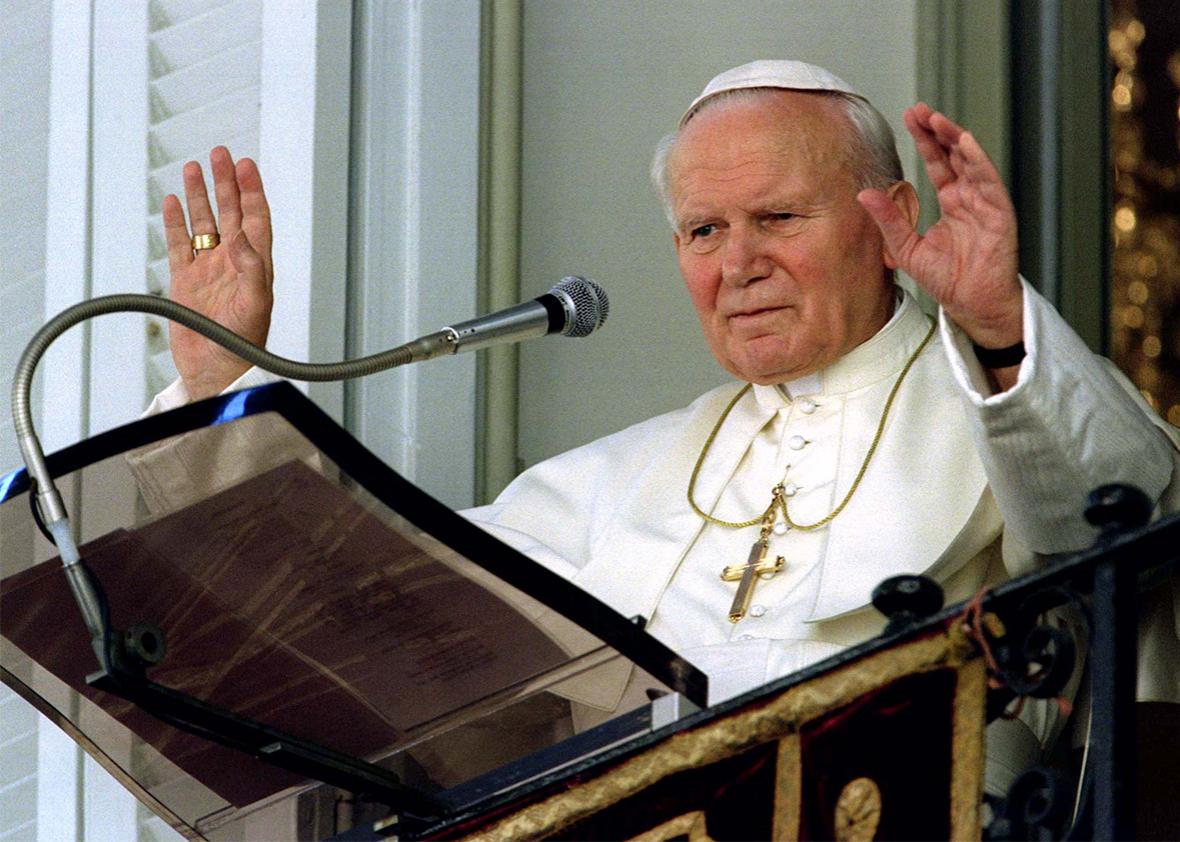The Catholic Church may delay the October beatification of Pope John Paul II as critics inside and outside the church investigate his role in protecting abusive priests and covering up their crimes. A Polish newspaper also claims that the French nun whom the late pope is supposed to have miraculously cured of Parkinson’s disease was actually suffering from a different—and treatable—disorder. Others allege that her symptoms were probably all in her head to start with. If Pope John Paul II is beatified or canonized and it later turns out that he engaged in illegal activities or that his miracles were transparently bogus, would he be stripped of his sainthood?
Probably not. The Roman Catholic Church has no process for reopening the dossier of an officially recognized saint, so anyone who manages to make it into the canon is set for eternity. The only time the Church has ever come close to downgrading a group of saints was in 1969, when Pope Paul VI called for a review of those who achieved their status before the institution of formal canonization proceedings in the 13th century. Prior to that time, local bishops approved thousands of saints without consulting the pontiff. (A group of cardinals noted in 1247 that few of the early saints would have achieved their status under Vatican scrutiny.) When Paul VI looked back at some of these early cases, he found that some revered old-timers—including the popular St. Christopher—may never have existed. But these figures weren’t un-sainted; the pope just took away their feast days.
Sainthood doesn’t mean very much for the people who are so honored, according to Church doctrine. The act of canonization itself has no bearing on the ultimate destination of a saint’s soul; it merely certifies, for the benefit of people on Earth, that the deceased is with God. As such, Catholics around the world are allowed to pray to the saint and ask him to intercede with God on their behalf. So even if the Pope did reverse a canonization, the former saint would not be ripped from God’s loving arms and cast into the flames. Not even the Pope has that kind of power.
The relationship of papal infallibility to canonization is controversial. That doctrine applies when the pope is making a solemn decree on a matter of faith or morals. The language used in declaring a saint—”we solemnly decide and define”—does suggest that infallibility might be in play, but no high priest has ever made a point of invoking it. Thomas Aquinas, for one, believed that canonization was an infallible act—even before he was canonized himself. Still, most modern theologians think the pope could reverse a sainthood without undermining the doctrine.
Fortunately for the Vatican, the lives of most saints are buried under centuries of history and reams of adoring hagiography, so embarrassing allegations typically arise before canonization is complete. (For example, allegations of miracle-fraud and sexual misconduct dogged Padre Pio in the years leading up to his canonization in 2002.) There is one conspicuous exception to this rule: In 1985, an Italian journalist alleged that a turn-of-the-century martyr named Maria Goretti—who was canonized by Pope Pius XII in 1950 after dying in defense of her sexual purity—was merely playing hard-to-get and that Pius fabricated the innocent-Italian-virgin angle to stir up Catholic anger against of the sexually liberated American occupation force. The Vatican’s body for vetting saintly candidates refused to reopen the case, so Goretti’s sainthood was never in danger. Rather, the Vatican convened a group of independent scholars who concluded the allegations were false. The committee was not asked to offer a recommendation on whether the canonization decision was itself correct nor did it ever consider doing so.
Got a question about today’s news? Ask the Explainer.
Explainer thanks Jason Boyett, author of Pocket Guide to Sainthood: The Field Manual for the Super-Virtuous Life, Lawrence S. Cunningham of the University of Notre Dame, and Kenneth L. Woodward, author of Making Saints: How the Catholic Church Determines Who Becomes a Saint, Who Doesn’t, and Why.
Become a fan of Slate and the Explainer on Facebook. Follow us on Twitter.
